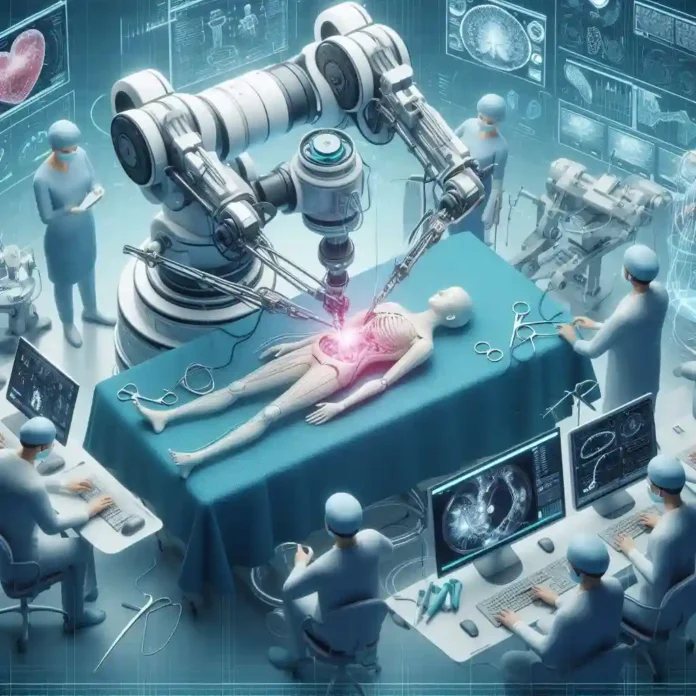The future of AI in medicine holds significant promise and is expected to bring about transformative changes across various aspects of healthcare. Here are some key areas where AI is likely to have a substantial impact:
Genomic Analysis
AI will continue to play a crucial role in analyzing vast genomic datasets, identifying genetic markers, and predicting individual responses to treatments. This enables the development of highly personalized and targeted therapies.
Early Detection
AI algorithms can detect subtle patterns or anomalies in medical images, aiding in the early diagnosis of diseases such as cancer. This early detection can significantly improve patient outcomes.

Multimodal Integration
Integration of data from various imaging modalities, such as combining CT scans with molecular imaging, can provide a more comprehensive understanding of diseases.
Drug Combinations
AI can analyze complex interactions between drugs and biological systems, leading to the discovery of effective drug combinations for certain conditions.
Repurposing Existing Drugs
AI algorithms can identify existing drugs that may be repurposed for new medical uses, potentially speeding up the development process.
Continuous Monitoring
AI-powered devices and wearables can continuously monitor patients, providing real-time data on vital signs and alerting healthcare providers to any deviations from normal patterns.
Chronic Disease Management
AI can assist in the management of chronic conditions by analyzing patient data to optimize treatment plans and support lifestyle interventions.
Clinical Documentation
NLP can extract valuable information from clinical notes, improving the efficiency of documentation and making it easier for healthcare providers to access relevant patient information.
Decision Support
NLP algorithms can assist in extracting insights from a vast amount of medical literature, aiding healthcare professionals in staying updated on the latest research and treatment options.
Autonomous Surgery
AI-driven robotic systems may evolve to perform certain surgical procedures autonomously, with a high degree of precision and reduced margin for error.
Teleoperated Surgery
Surgeons could perform procedures remotely using robotic systems, allowing access to expertise in areas with limited healthcare resources.
Virtual Health Coaches
AI-driven virtual assistants can provide personalized guidance on lifestyle choices, medication adherence, and mental health, promoting patient engagement.
Behavioral Analysis
AI can analyze patient behavior patterns to identify signs of mental health issues or potential non-compliance with treatment plans.
Bias Mitigation
Efforts to address biases in AI algorithms to ensure fair and equitable healthcare outcomes.
Privacy Protection
Stricter regulations and AI frameworks to protect patient privacy and data security.
Explainability
Developments in making AI systems more interpretable and understandable to healthcare professionals.
Training Healthcare Professionals
Integration of AI education into medical and healthcare professional training programs to ensure a workforce that is well-versed in the use of AI technologies.
Interoperability
Developing standards for interoperability between different AI systems and healthcare IT infrastructure.
International Standards
Establishing global standards for the development, validation, and deployment of AI in healthcare to facilitate cross-border collaboration.
Data Sharing
Encouraging responsible data sharing for research purposes while maintaining patient privacy.
As AI in medicine progresses, it is essential to balance innovation with ethical considerations, patient-centricity, and the need for ongoing collaboration across various stakeholders in the healthcare ecosystem. Continued research, investment, and thoughtful implementation are key to realizing the full potential of AI in improving healthcare outcomes worldwide.


